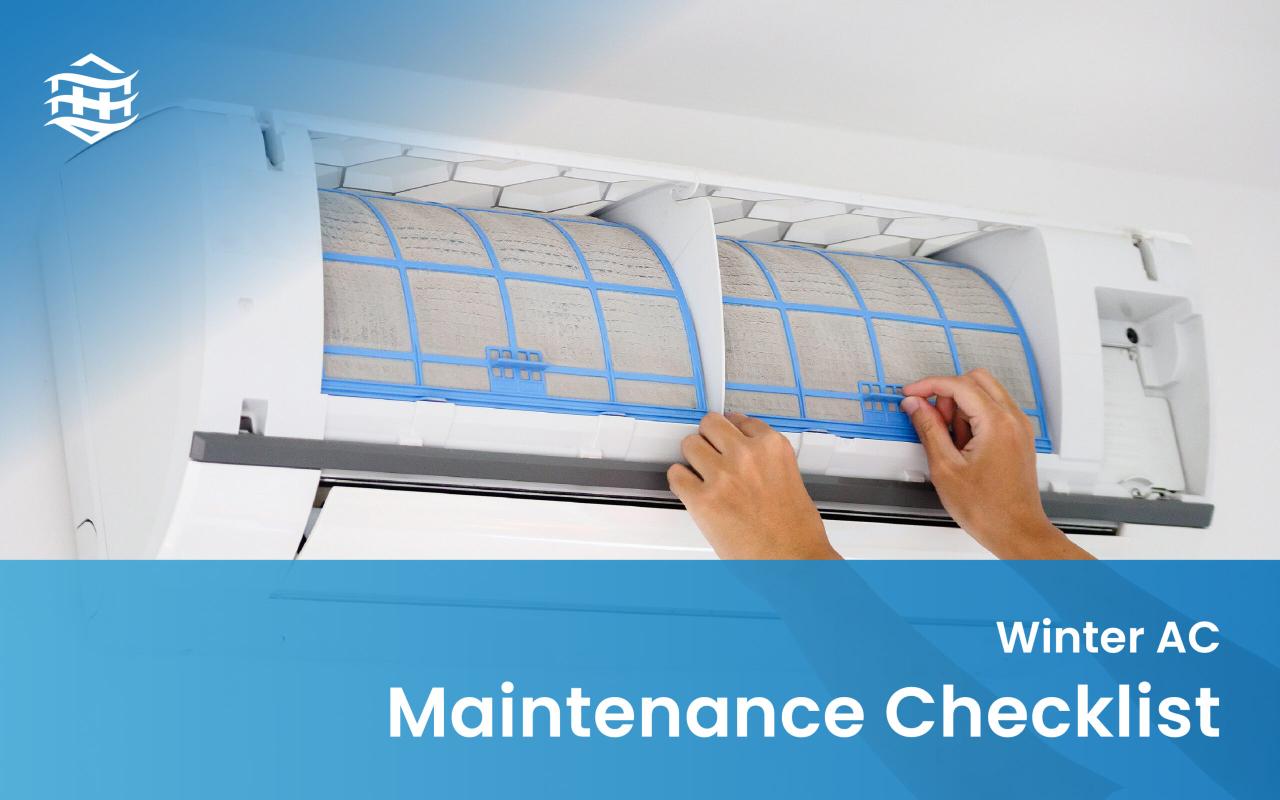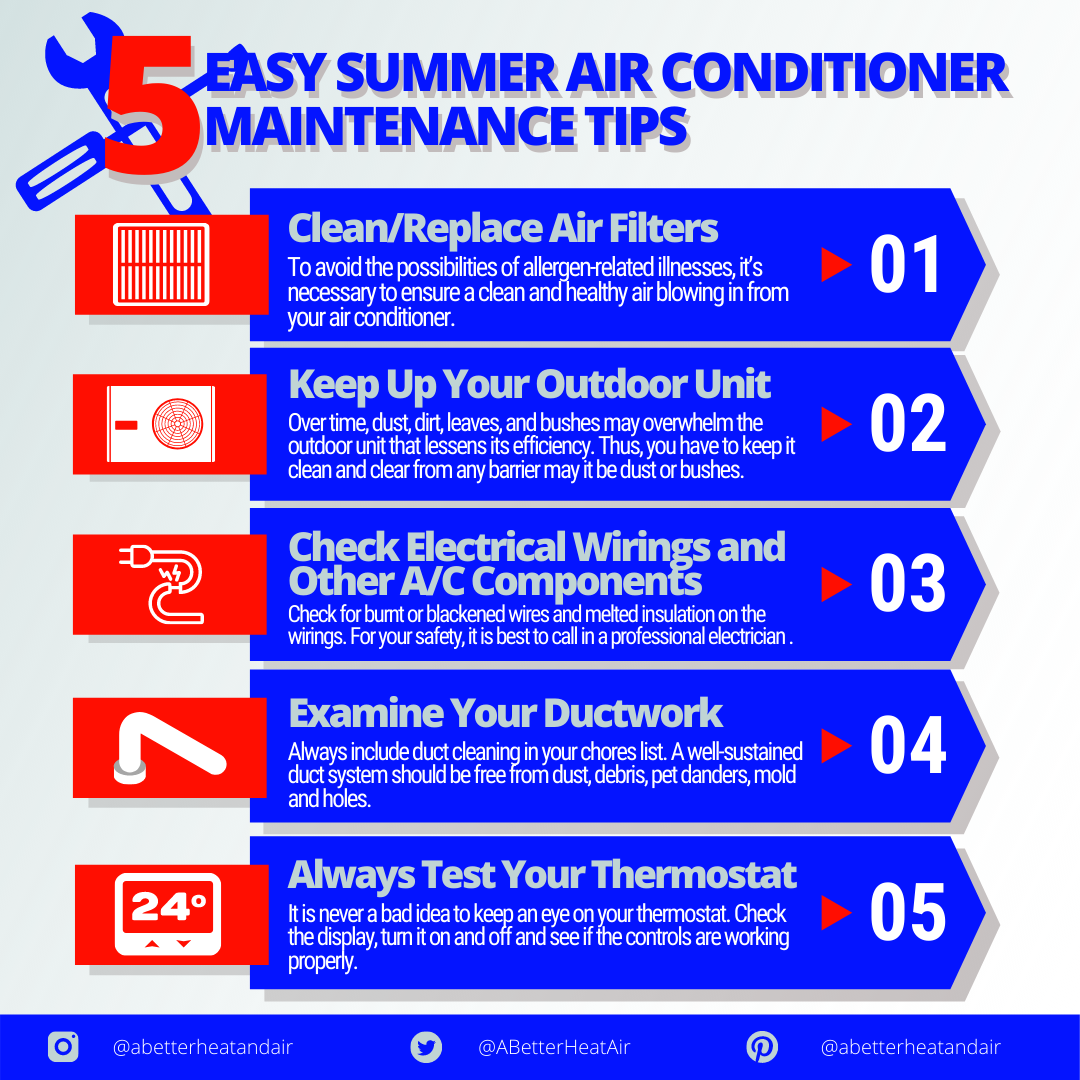Seasonal AC Maintenance Guide for Homeowners: A Comprehensive Overview

Embark on a journey through the essential Seasonal AC Maintenance Guide for Homeowners, delving into the significance of regular upkeep for your cooling system. From cost-saving benefits to energy efficiency perks, this guide covers it all.
Explore the detailed checklists for each season, understand the importance of DIY versus professional maintenance, and discover valuable tips for keeping your AC system in top shape year-round.
Importance of Seasonal AC Maintenance

Regular maintenance of your air conditioning system is essential for homeowners to ensure optimal performance, longevity, and efficiency. By scheduling seasonal AC maintenance, you can benefit in various ways, including cost savings and energy efficiency.
Cost Savings
- Regular maintenance helps identify and address minor issues before they escalate into major problems that require costly repairs.
- Well-maintained AC systems operate more efficiently, resulting in lower energy consumption and reduced utility bills.
- Proper maintenance extends the lifespan of your air conditioning unit, saving you money on premature replacements.
Energy Efficiency
- Dirty filters and clogged coils can hinder the airflow and strain the system, leading to increased energy usage.
- Seasonal maintenance includes cleaning and tuning the AC components, ensuring optimal performance and energy efficiency.
- An efficiently running air conditioner consumes less energy, reducing your carbon footprint and contributing to a greener environment.
Potential Risks of Neglect
- Neglecting seasonal AC maintenance can result in decreased cooling capacity and uneven temperature distribution in your home.
- Dirty components can lead to poor indoor air quality, aggravating allergies and respiratory issues for you and your family.
- Ignoring maintenance can cause sudden breakdowns, leaving you without cooling during hot summer days and requiring emergency repairs.
Spring AC Maintenance Checklist
When it comes to preparing your air conditioning system for the warmer months ahead, following a spring maintenance checklist is key to ensure optimal performance and longevity. Here are some essential tasks to include in your spring AC maintenance routine:
Changing Filters and Cleaning Vents
Regularly changing your air filters and cleaning your vents is crucial for maintaining good indoor air quality and efficient airflow throughout your home. Clogged filters can restrict airflow, causing your AC system to work harder and consume more energy.
- Replace air filters every 1-3 months, depending on usage.
- Vacuum or wipe down vents to remove dust and debris.
- Consider professional duct cleaning every few years for optimal performance.
Inspecting the Outdoor Unit and Clearing Debris
The outdoor unit of your AC system also requires attention to ensure proper function and prevent breakdowns. Debris buildup around the unit can obstruct airflow and reduce efficiency.
- Trim vegetation and clear any debris within a 2-foot radius around the unit.
- Check for any visible damage or signs of wear on the unit's exterior.
- Remove any leaves, branches, or other obstructions from the unit's fins.
Summer AC Maintenance Tips

Summer is the time when your air conditioning system works the hardest to keep your home cool and comfortable. Here are some tips to help you maintain your AC system efficiently during the summer months.
Checking Refrigerant Levels
It is crucial to ensure that your AC system has the correct level of refrigerant. Low refrigerant levels can lead to inefficient cooling and potential damage to the compressor. If you suspect a refrigerant leak, it is best to contact a professional HVAC technician to inspect and recharge the system.
Inspecting Ductwork
Leaking or poorly insulated ductwork can lead to cooled air escaping before it reaches your living spaces. Make sure to inspect your ductwork for any signs of damage or leaks. Sealing and insulating ducts can improve the efficiency of your AC system and reduce energy costs.
Troubleshooting Inadequate Cooling
If you notice that your AC system is not cooling your home adequately, there may be several reasons behind it. Check your air filters for dirt and debris, clean the evaporator and condenser coils, and ensure that the thermostat is set correctly.
If the issue persists, it is best to contact a professional for a thorough inspection and repair.
Fall AC Maintenance for Winter Preparation
Preparing your AC for the winter season is crucial to ensure it remains in good working condition for the following year. Here are some essential maintenance tasks to consider:
Sealing Air Leaks and Insulating Ductwork
- Inspect your home for any air leaks around windows, doors, and electrical outlets. Use caulk or weatherstripping to seal these leaks to prevent heat loss during the winter.
- Check the ductwork for any signs of damage or leaks. Seal any gaps with duct tape or mastic sealant to improve the efficiency of your HVAC system.
- Consider adding insulation to your ductwork to prevent heat loss and ensure that warm air reaches all parts of your home efficiently.
Protecting the Outdoor Unit
- Remove any debris, such as leaves or branches, from around the outdoor unit to prevent airflow blockages.
- Cover the outdoor unit with a waterproof, breathable cover to protect it from snow, ice, and other winter weather conditions.
- Consider elevating the unit slightly to prevent it from sitting in standing water, which can cause damage over time.
DIY vs. Professional AC Maintenance
When it comes to seasonal AC maintenance, homeowners often face the decision between tackling tasks themselves or hiring a professional HVAC technician. Each option has its benefits and drawbacks, so it's essential to understand when to DIY and when to seek professional help.
Benefits and Drawbacks of DIY AC Maintenance
- Benefits:
- Cost-effective as you won't have to pay for labor fees.
- You can address minor issues promptly without waiting for a technician.
- You have more control over the maintenance process and can schedule it at your convenience.
- Drawbacks:
- Lack of expertise may lead to improper maintenance, causing more significant problems.
- You might void your warranty if maintenance is not done correctly.
- Some tasks require specialized tools and knowledge that homeowners may not possess.
When to DIY and When to Hire a Professional
- DIY Maintenance:
- Changing air filters, cleaning vents, and removing debris from the outdoor unit are tasks homeowners can typically handle.
- Regular visual inspections and basic cleaning can be DIY projects to keep your AC running efficiently.
- Professional Help:
- Complex issues like refrigerant leaks, electrical problems, or compressor malfunctions should be handled by a licensed technician.
- An annual professional inspection ensures that all components are working correctly and can prevent costly repairs in the future.
Finding a Reliable HVAC Technician for Seasonal Maintenance
- Ask for recommendations from friends, family, or neighbors who have had positive experiences with HVAC companies.
- Check online reviews and ratings to gauge the reputation of different service providers in your area.
- Ensure the technician is licensed, insured, and offers warranties on their work to guarantee quality service.
Final Summary

In conclusion, by following this guide, homeowners can ensure their AC system operates efficiently, saves on energy costs, and remains in optimal condition throughout the year. Stay proactive in your maintenance efforts to enjoy a cool and comfortable home environment.
Quick FAQs
How often should I change my AC filters?
It is recommended to change your AC filters every 1-3 months, depending on usage and filter type.
Why is it important to check refrigerant levels in the summer?
Low refrigerant levels can lead to inefficient cooling and potential damage to your AC system. Checking and maintaining proper levels is crucial for optimal performance.
When should I consider hiring a professional for AC maintenance?
If you encounter complex issues, such as refrigerant leaks or electrical problems, it's best to seek professional help to avoid further damage.

